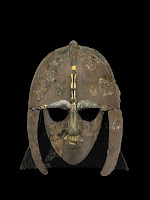Watching the BBC’s coverage of the General Election, it was interesting to note that the two most eloquent commentators – Vernon Bogdanor and Peter Hennessy – were both historians. It looks like we may be on the verge of major reform of the UK voting system, currently, according to Hennessy, a ‘rigged market in an era of economic deregulation’. It is not so much that a reformed system would introduce fairness, but that it would mirror an increasingly fractured and fractious society. It would certainly not offer a promise of stability as it would be likely to open still further the fissures between the nations.
Bear in mind that the BNP got almost 70,000 more votes than the SNP (who now have six MPs) and that UKIP garnered almost one million votes, over twice that of the SNP and five times that of the Democratic Unionist Party (who now have eight MPs). The Greens, for whom this was supposedly a ‘breakthrough’ election, got their first MP, though they were backed nationally by less than 300,000 voters. If reform goes ahead, there will be many more ‘breakthroughs’ next time, though considerably less of the UK’s much-lauded political stability. Are we about to open a Pandora’s box?














